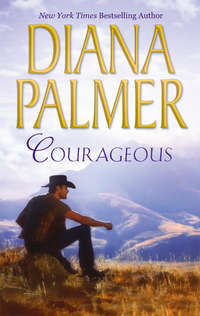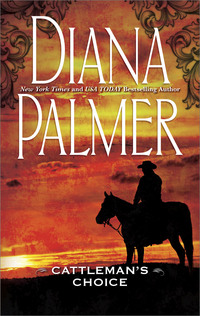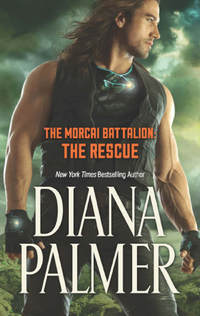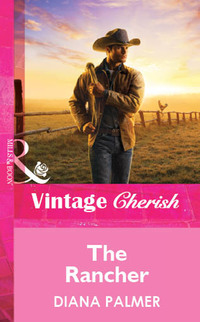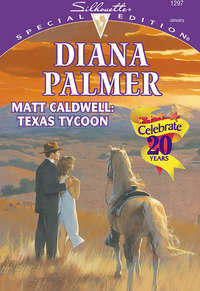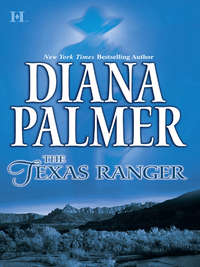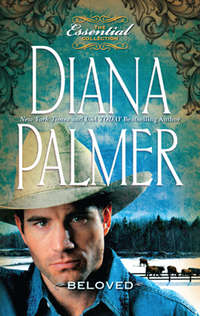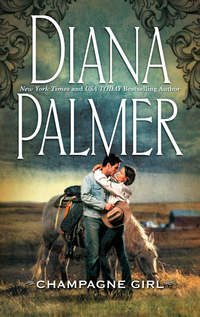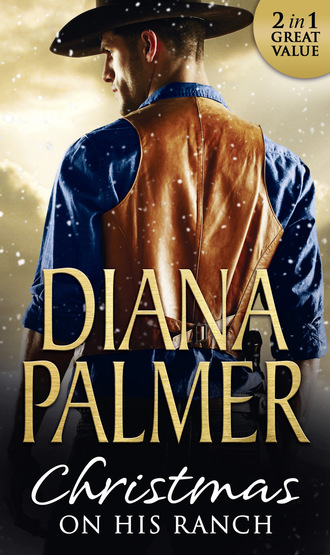
Полная версия
Christmas On His Ranch
“Right down to paying for my college education. That was the thing that led to all the trouble. Powell didn’t like George at all. His father lost a lot of land to George—in fact, Dawson is still at odds with Powell over that land, even today, you know. He may live in Sheridan, but his ranch covers hundreds of acres right up against Powell’s ranch, and I understand from Dad that he gives him fits at any opportunity.”
“Dawson has never forgotten or forgiven the lies that Sally told about George,” came the quiet reply. “He spoke to Sally, you know. He cornered her in town and gave her hell, with Powell standing right beside her.”
“You never told me that,” Antonia said on a quick breath.
“I didn’t know how to,” Barrie replied. “It hurts you just to have Powell’s name mentioned.”
“I suppose Powell stood up for her,” she said, fishing.
“Even Powell is careful about how he deals with Dawson,” Barrie reminded her. “Besides, what could he say? Sally told a lie and she was caught, red-handed. Too late to do you any good, they were already married by then.”
“You mean, Powell’s known the truth for nine years?” Antonia asked, aghast.
“I didn’t say he believed Dawson,” the other woman replied gently, averting her eyes.
“Oh. Yes. Well.” Antonia fought for composure. How ridiculous, to think Powell would have accepted the word of his enemy. He and Dawson never had gotten along. She said it aloud even as she thought it.
“Is it likely that they would? My stepfather beat old man Long out of everything he owned in a poker game when they were both young men. The feud has gone on from there. Dawson’s land borders Powell’s, and they’re both bent on empire building. If a tract comes up for sale, you can bet both men will be standing on the Realtor’s doorstep trying to get first dibs on it. In fact, that’s what they’re butting heads about right now, that strip of land that separates their ranches that the widow Holton owns.”
“They own the world between them,” Antonia said pointedly.
“And they only want what joins theirs.” Barrie chuckled. “Ah, well, it’s no concern of ours. Not now. The less I see of my stepbrother, the happier I am.”
Antonia, who’d only once seen the two of them together, had to agree. When Dawson was anywhere nearby, Barrie became another person, withdrawn and tense and almost comically clumsy.
“Well, if you change your mind about the holidays, my door is open,” Barrie reminded her.
Antonia smiled warmly. “I’ll remember. If Dad can’t come down for the holidays, you could come home with me,” she added.
Barrie shivered. “No, thanks! Bighorn is too close to Dawson for my taste.”
“Dawson lives in Sheridan.”
“Not all the time. Occasionally he stays at the ranch in Bighorn. He spends more and more time there these days.” Her face went taut. “They say the widow Holton is the big attraction. Her husband had lots of land, and she hasn’t decided who she’ll sell it to.”
A widow with land. Barrie had mentioned that Powell was also in competition with Dawson for the land. Or was it the widow? He was a widower, too, and a long-standing one. The thought made her sad.
“You need to eat more,” Barrie remarked, concerned by her friend’s appearance. “You’re getting so thin, Annie, although it does give you a more fragile appearance. You have lovely bone structure. High cheekbones and good skin.”
“I inherited the high cheekbones from a Cheyenne grandmother,” she said, remembering sadly that Powell had called her Cheyenne as a nickname— actually meant as a corruption of “shy Ann,” which she had been when they first started dating.
“Good blood,” Barrie mused. “My ancestry is black Irish—from the Spanish armada that was blown off course to the coast of Ireland. Legend has it that one of my ancestors was a Spanish nobleman, who ended up married to a stepsister of an Irish lord.”
“What a story.”
“Isn’t it, though? I must pursue historical fiction one day—in between stuffing mathematical formulae into the heads of innocents.” She glanced at her watch. “Heavens, I’ll be late for my date with Bob! Gotta run. See you Monday!”
“Have fun.”
“I always have fun. I wish you did, once in a while.” She waved from the door, leaving behind a faint scent of perfume.
Antonia loaded her attaché case with papers to grade and her lesson plan for the following week, which badly needed updating. When her desk was cleared, she sent a last look around the classroom and went out the door.
Her small apartment overlooked “A” mountain in Tucson, so-called because of the giant letter A that was painted at its peak and was repainted year after year by University of Arizona students. The city was flat and only a small scattering of tall buildings located downtown made it seem like a city at all. It was widespread, sprawling, sandy and hot. Nothing like Bighorn, Wyoming, where Antonia’s family had lived for three generations.
She remembered going back for her mother’s funeral less than a year ago. Townspeople had come by the house to bring food for every meal, and to pay their respects. Antonia’s mother had been well-loved in the community. Friends sent cartloads of the flowers she’d loved so much.
The day of the funeral had dawned bright and sunny, making silver lights in the light snow covering, and Antonia thought how her mother had loved spring. She wouldn’t see another one now. Her heart, always fragile, had finally given out. At least, it had been a quick death. She’d died at the stove, in the very act of putting a cake into the oven.
The service was brief but poignant, and afterward Antonia and her father had gone home. The house was empty. Dawson Rutherford had stopped to offer George’s sympathy, because George had been desperately ill, far too ill to fly across the ocean from France for the funeral. In fact, George had died less than two weeks later.
Dawson had volunteered to drive Barrie out to the airport to catch her plane back to Arizona, because Barrie had come to the funeral, of course. Antonia had noted even in her grief how it affected Barrie just to have to ride that short distance with her stepbrother.
Later, Antonia’s father had gone to the bank and Antonia had been halfheartedly sorting her mother’s unneeded clothes and putting them away when Mrs. Harper, who lived next door and was helping with the household chores, announced that Powell Long was at the door and wished to speak with her.
Having just suffered the three worst days of her life, she was in no condition to face him now.
“Tell Mr. Long that we have nothing to say to each other,” Antonia had replied with cold pride.
“Guess he knows how it feels to lose somebody, since he lost Sally a few years back,” Mrs. Harper reminded her, and then watched to see how the news would be received.
Antonia had known about Sally’s death. She hadn’t sent flowers or a card because it had happened only three years after Antonia had fled Bighorn, and the bitterness had still been eating at her.
“I’m sure he understands grief,” was all Antonia said, and waited without saying another word until Mrs. Harper got the message and left.
She was back five minutes later with a card. “Said to give you this,” she murmured, handing the business card to Antonia, “and said you should call him if you needed any sort of help.”
Help. She took the card and, without even looking at it, deliberately tore it into eight equal parts. She handed them back to Mrs. Harper and turned again to her clothes sorting.
Mrs. Harper looked at the pieces of paper in her hand. “Enough said,” she murmured, and left.
It was the last contact Antonia had had with Powell Long since her mother’s death. She knew that he’d built up his purebred Angus ranch and made a success of it. But she didn’t ask for personal information about him after that, despite the fact that he remained a bachelor. The past, as far as she was concerned, was truly dead. Now, she wondered vaguely why Powell had come to see her that day. Guilt, perhaps? Or something more? She’d never know.
She found a message on her answering machine and played it. Her father, as she’d feared, was suffering his usual bout of winter bronchitis and his doctor wouldn’t let him go on an airplane for fear of what it would do to his sick lungs. And he didn’t feel at all like a bus or train trip, so Antonia would have to come home for Christmas, he said, or they’d each have to spend it alone.
She sat down heavily on the floral couch she’d purchased at a local furniture store and sighed. She didn’t want to go home. If she could have found a reasonable excuse, she wouldn’t have, either. But it would be impossible to leave her father sick and alone on the holidays. With resolution, she picked up the telephone and booked a seat on the next commuter flight to Billings, where the nearest airport to Bighorn was located.
Because Wyoming was so sparsely populated, it was lacking in airports. Powell Long, now wealthy and able to afford all the advantages, had an airstrip on his ranch. But there was nowhere in Bighorn that a commercial aircraft, even a commuter one, could land. She knew that Barrie’s stepbrother had a Learjet and that he had a landing strip near Bighorn on his own ranch, but she would never have presumed on Barrie’s good nature to ask for that sort of favor. Besides, she admitted to herself, she was as intimidated by Dawson Rutherford as Barrie was. He, like Powell, was high-powered and aggressively masculine. Antonia felt much safer seated on an impersonal commuter plane.
She rented a car at the airport in Billings and, with the easy acceptance of long distances on the road from her time in Arizona, she set out for Bighorn.
The countryside was lovely. There were scattered patches of snow, something she hadn’t thought about until it was too late and she’d already rented the car. There was snow on the ground in Billings, quite a lot of it, and although the roads were mostly clear, she was afraid of icy patches. She’d get out, somehow, she told herself. But she did wish that she’d had the forethought to ask her father about the local weather when she’d phoned to say she was leaving Tucson on an early-morning flight. But he was hoarse and she hadn’t wanted to stress his voice too much. He knew when she was due to arrive, though, and if she was too long overdue, she was certain that he’d send someone to meet her.
She gazed lovingly at the snow-covered mountains, thinking of how she’d missed this country that was home to her, home to generations of her family. There was so much of her history locked into these sweeping mountain ranges and valleys, where lodgepole pines stood like sentinels over shallow, wide blue streams. The forests were green and majestic, looking much as they must have when mountain men plied their trade here. Arizona had her own forests, too, and mountains. But Wyoming was another world. It was home.
The going got rough the closer to home she went. It was just outside Bighorn that her car slipped on a wide patch of ice and almost went into a ditch. She knew all too well that if she had, there would have been no way she could get the vehicle out, because the slope was too deep.
With a prayer of thanks, she made it into the small town of Bighorn, past the Methodist Church and the post office and the meat locker building to her father’s big Victorian house on a wide street off the main thoroughfare. She parked in the driveway under a huge cottonwood tree. How wonderful to be home for Christmas!
There was a decorated tree in the window, all aglow with the lights and ornaments that had been painstakingly purchased over a period of years. She looked at one, a crystal deer, and remembered painfully that Powell had given it to her the Christmas they’d become engaged. She’d thought of smashing it after his desertion, but she couldn’t bring herself to do it. The tiny thing was so beautiful, so fragile; like their destroyed relationship. So long ago.
Her father came to the door in a bathrobe and pajamas, sniffling.
He hugged her warmly. “I’m so glad you came, girl,” he said hoarsely, and coughed a little. “I’m much better, but the damn doctor wouldn’t let me fly!”
“And rightly so,” she replied. “You don’t need pneumonia!”
He grinned at her. “I reckon not. Can you stay until New Year’s?”
She shook her head. “I’m sorry. I have to go back the day after Christmas.” She didn’t mention her upcoming doctor’s appointment. There was no need to worry him.
“Well, you’ll be here for a week, anyway. We won’t get to go out much, I’m afraid, but we can keep each other company, can’t we?”
“Yes, we can.”
“Dawson said he might come by one evening,” he added surprisingly. “He’s just back from Europe, some convention or other he said he couldn’t miss.”
“At least he never believed the gossip about George and me,” she said wistfully.
“Why, he knew his father too well,” he replied simply.
“George was a wonderful man. No wonder you and he were friends for so long.”
“I miss him. I miss your mother, too, God rest her soul. She was the most important person in my life, next to you.”
“You’re the most important person in mine,” she agreed, smiling. “It’s good to be home!”
“Still enjoy teaching?”
“More than ever,” she told him warmly.
“There’s some good schools here,” he remarked. “They’re always short of teachers. And two of them are expecting babies any day. They’ll have problems getting supply teachers in for that short little period.” He eyed her. “You wouldn’t consider…?”
“I like Tucson,” she said firmly.
“The hell you do,” he muttered. “It’s Powell, isn’t it? Damn fool, listening to that scatterbrained woman in the first place! Well, he paid for it. She made his life hell.”
“Would you like some coffee?” she asked, changing the subject.
“Oh, I suppose so. And some soup. There’s some canned that Mrs. Harper made for me.”
“Does she still live next door?”
“She does,” he murmured with a wicked smile, “and she’s a widow herself. No need to ask why she brought the soup, is there?”
“I like Mrs. Harper,” she said with a grin. “She and Mother were good friends, and she’s like family already. Just in case you wondered what I thought,” she added.
“It’s only been a year, girl,” he said, and his eyes were sad.
“Mother loved you too much to want you to go through life alone,” she said. “She wouldn’t want you to grieve forever.”
He shrugged. “I’ll grieve as long as I please.”
“Suit yourself. I’ll change clothes and then I’ll see about the soup and coffee.”
“How’s Barrie?” her father asked when Antonia came out of her bedroom dressed in jeans and a white sweatshirt with golden sequined bells and red ribbon on it.
“She’s just fine. Spunky as ever.”
“Why didn’t you bring her with you?”
“Because she’s juggling four boyfriends,” she said, chuckling as she went about warming soup.
“Dawson won’t wait forever.”
She glanced at him. “Is that what you think, too? She won’t talk about him.”
“He won’t talk about her, either.”
“What’s this rumor about him and the widow Holton?”
He sat down in a chair at the table with a painful breath. “The widow Holton is redheaded and vivacious and a man-killer,” he said. “She’s after Dawson. And Powell Long. And any other man with money and a passable face.”
“I see.”
“You don’t remember her, do you? Came here before you went off to college, but she and her husband traveled a lot. She was some sort of actress. She’s been home more since he died.”
“What does she do?”
“For a living, you mean?” He chuckled and had to fight back a cough. “She’s living on her inheritance. Doesn’t have to do anything, lucky girl.”
“I wouldn’t want to do nothing,” Antonia remarked thoughtfully. “I like teaching. It’s more than just a job.”
“Some women aren’t made for purposeful employment.”
“I guess not.”
She finished heating the soup and poured the coffee she’d made. They ate in silence.
“I wish your mother was here,” he said.
She smiled sadly. “So do I.”
“Well, we’ll make the most of what we have and thank God for it.”
She nodded. “We have more than some people do.”
He smiled, seeing her mother’s face in her own. “And a lot more than most,” he added. “I’m glad you came home for Christmas.”
“So am I. Eat your soup.” She poured him some more, and thought that she was going to make this Christmas as happy for him as she could.
Chapter Two
Dawson Rutherford was tall, lean and drop-dead gorgeous with blond, wavy hair and eyes that seemed to pierce skin. Even if he hadn’t been so handsome, his physical presence was more than enough to make him attractive, added to a deep voice that had the smoothness of velvet, even in anger. But he was as icy a man as she’d ever known, especially with women. At his father’s funeral, she’d actually seen him back away from a beautiful woman to avoid being touched. Odd, that, when she knew for a fact that he’d been quite a rounder with women in his checkered past.
If Antonia hadn’t given her heart to Powell Long so many years before, she wouldn’t have minded setting her cap at Dawson, intimidating though he was. But he was plainly meant for another type of woman altogether. Barrie, perhaps.
It was Christmas Eve, and he’d stopped by with a pipe for her father. Antonia walked him out a few minutes later.
“Shame on you,” she muttered, pausing on the porch.
Dawson’s green eyes twinkled. “He’ll get over the bronchitis. Besides, you know he won’t quit smoking, whether or not I give him a new pipe. You’ve tried and I’ve tried for years to break him. The best we can do is make him smoke it outdoors.”
“I know that,” she agreed, and smiled. “Well, it was a nice gesture.”
“Want to see what he gave me?” he asked, and produced a smooth silver lighter with inlaid turquoise.
“I didn’t know you smoked,” she observed.
“I don’t.”
Her eyes widened.
“I did, just briefly, smoke cigars.” He corrected himself. “I gave it up months ago. He doesn’t know, so don’t tell him.”
“I won’t. But good for you!” she said approvingly.
He shrugged. “I don’t know any smokers who don’t want to quit.” His eyes narrowed, and he watched her without blinking. “Except one, maybe.”
She knew he was talking about Powell, who always had smoked cigars, and presumably still did. Her face began to close up. “Don’t say it.”
“I won’t. You look tortured.”
“It was nine years ago.”
“Somebody should have shot him for the way he treated you,” he replied. “I’ve never liked him, but that didn’t win him any points with me. I loved my father. It was a low thing, for Sally to make him out a foolish old man with a lust for young girls.”
“She wanted Powell.”
His eyes narrowed. “She got him. But he made her pay for it, let me tell you. She took to alcohol because he left her alone so much, and from all accounts, he hated their daughter.”
“But why?” Antonia asked, shocked. “Powell loved children, surely…!”
“Sally trapped him with the child,” he replied. “Except for that, he’d have left her. Don’t you think he knew what a stupid thing he’d done? He knew the truth, almost from the day he married Sally.”
“But he stayed with her.”
“He had to. He was trying to build a ranch out of nothing, and this is a small town. How would it look for a man to walk out on a pregnant woman, or on his own newborn daughter?” He pursed his lips. “He hates you, you know,” he added surprisingly. “He hates you for not making him listen, for running. He blames his misery on you.”
“He’s your worst enemy, so how do you know so much?” she retorted.
“I have spies.” He sighed. “He can’t admit that the worst mistake was his own, that he wouldn’t believe Sally capable of such underhanded lies. It wasn’t until he married her that he realized how she’d conned him.” He shrugged. “She wasn’t a bad woman, really. She was in love and she couldn’t bear losing him, even to you. Love does crazy things to people.”
“She destroyed my reputation, and your father’s, and made it impossible for me to live here,” Antonia said without pity. “She was my enemy, and he still is. Don’t think I’m harboring any tender feelings for him. I’d cut his throat given the slightest opportunity.”
His eyebrows levered up. Antonia was a gentle soul herself for the most part, despite an occasional outburst of temper and a keen wit that surprised people. She hadn’t ever seemed vindictive, but she harbored a long-standing grudge against her former best friend, Sally. He couldn’t really blame her.
He fingered the lighter her father had given him. “How’s Barrie?” he asked with deliberate carelessness.
“Fending off suitors,” she said with a grin, her soft gray eyes twinkling. “She was juggling four of them when I left.”
He laughed coldly. “Why doesn’t that surprise me? One man was never enough for her, even when she was a teenager.”
She was curious about his antagonism toward Barrie. It seemed out of place. “Why do you hate her so?” she asked bluntly.
He looked surprised. “I don’t…hate her,” he said. “I’m disappointed at the way she behaves, that’s all.”
“She isn’t promiscuous,” she said, defending her colleague. “She may act that way, but it’s only an act. Don’t you know that?”
He looked at the lighter, frowning slightly. “Maybe I know more than you think,” he said curtly. His eyes came up. “Maybe you’re the one wearing blinders.”
“Maybe you’re seeing what you want to see,” she replied gently.
He pocketed the lighter with a curt gesture. “I’d better go. I’ve got a deal cooking. I don’t want the client to get cold feet.”
“Thanks for coming to see Dad. You cheered him up.”
“He’s my friend.” He smiled. “So are you, even when you stick your nose in where you shouldn’t.”
“Barrie’s my friend.”
“Well, she’s not mine,” he said flatly. “Merry Christmas, Annie.”
“You, too,” she replied with a warm smile. He was kind, in his way. She liked him, but she felt sorry for Barrie. He was a heartbreaker. And unless she missed her guess, Barrie was in love with him. His feelings were much less readable.
After he left, she went back to join her father in the kitchen, where he was fixing hot chocolate in a double boiler. He glanced over his shoulder.
“Did he leave?”
“Yes. Can I help?”
He shook his head. He poured hot chocolate into two mugs and nodded for her to take one while he put the boiler in water to soak.
“He gave me a pipe,” he told her when they were seated at the small kitchen table, sipping the hot liquid. He grinned. “Didn’t have the heart to tell him that I’ve finally given it up.”
“Dad!” She reached across and patted his hand. “Oh, that’s great news!”
He chuckled. “Figured you’d like it. Maybe I won’t have so much trouble with my lungs from now on.”
“Speaking of lungs,” she said, “you gave Dawson a lighter. Guess what he’s just given up, and didn’t have the heart to tell you?”
He burst out laughing. “Well, maybe he can use it to light fires under his beef cattle when he throws barbecues out on the Rutherford spread.”
“What a good idea! I’ll suggest it to him the next time we see him.”
“I wouldn’t hold my breath,” he replied. “He travels a lot these days. I hardly ever see him.” He lifted his eyes to hers. “Powell came by last week.”
Her heart fluttered, but her face was very composed. “Did he? Why?”
“Heard I was sick and came to check on me. Wanted to know where you were.”
Her frozen expression grew darker. “Did he?”
“I told him you didn’t know about the bronchitis and that he should mind his own business.”
“I see.”
He sipped hot chocolate and put the mug down with a thud. “Had his daughter with him. Quiet, sullen little thing. She never moved a muscle the whole time, just sat and glared. She’s her mother all over.”


